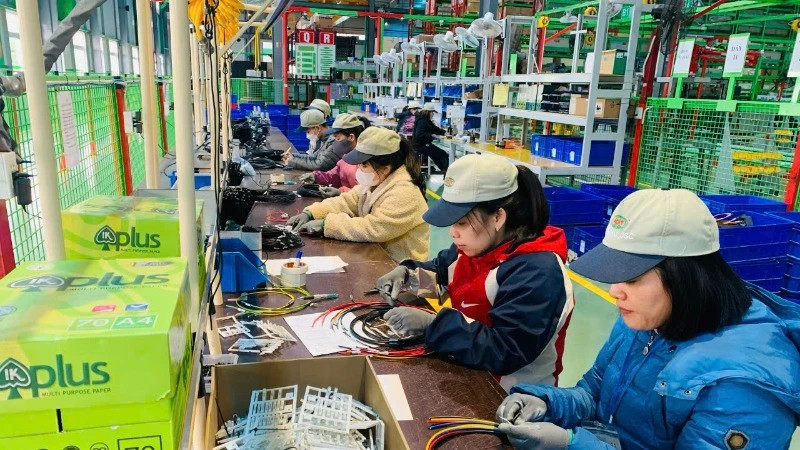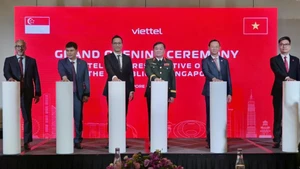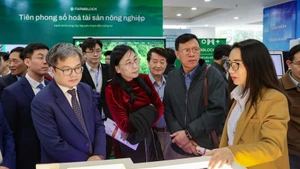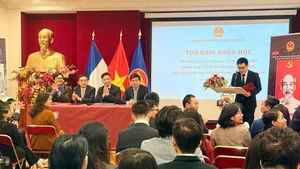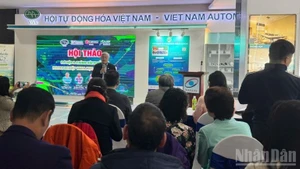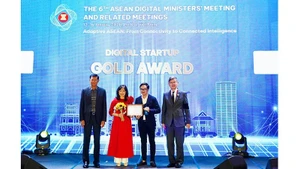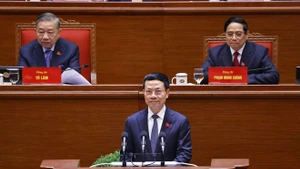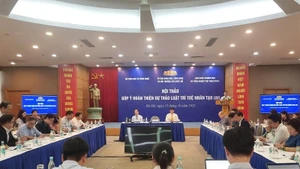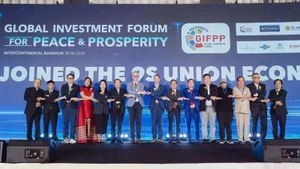Challenges of the talent race
Resolution No.57-NQ/TW of the Politburo emphasises that human resources are one of the core factors to create breakthroughs in the development of science, technology, innovation and digital transformation, which requires special policies to attract and promote domestic and foreign technology talents through breakthrough mechanisms.
According to experts, Vietnam lacks high-quality human resources in key areas such as artificial intelligence (AI), big data, cybersecurity, etc. These are also important areas with strong development potential, but require personnel with extensive knowledge and high skills. This reality makes technology enterprises compete fiercely to find and retain talent.
In addition, many Vietnamese enterprises have not focused on training digital skills, improving technological capacity for workers; there are no policies to treat and encourage highly qualified personnel; have not attracted good human resources to strategic technology industries, etc., which also makes it difficult to compete to attract talent, leading to a continued shortage of high-quality human resources.
According to Le Hong Quang, General Director of MISA Joint Stock Company, in the technology industry in Vietnam today, the number of skilled human resources meeting job requirements is limited, and the supply of human resources is not enough to meet demand. Many companies, including MISA, face experienced and highly skilled personnel wanting to move to larger companies with better salaries, benefits and other conditions.
As one of the leading technology corporations in Vietnam, Chairman and General Director of the Military Industry Telecoms Group (Viettel), Tao Duc Thang, said that it is inevitable that competent and experienced personnel will be attracted by other companies. There have been some outstanding individuals who, after working at Viettel, decided to change jobs because they were offered salaries 4-5 times higher than at Viettel. The Group has made efforts to attract and retain these expert personnel with many special benefits, but not all cases have been successful.
A representative of Viettel Group also shared that it is regrettable that talented personnel leave. However, the Group always supports, because wherever they go, whatever they do, those talented people will help society, their homeland, and Viettel is always proud to be the place to train and foster those talents.
Change to meet practical needs
According to experts, for science, technology, innovation and digital transformation to truly become the driving force for development, technology enterprises need to have a comprehensive human resource strategy; need to have an outstanding mechanism to attract domestic and foreign talent, build special policies on remuneration and working environment; at the same time invest in infrastructure, build digital skills training programs for employees.
To attract and retain talent, many enterprises now have strategies in terms of recruitment mechanisms, infrastructure investment, training programs, remuneration policies and building a dynamic and creative working environment. A flexible working environment and strong corporate culture will help retain talent more effectively than companies without a clear cultural strategy.
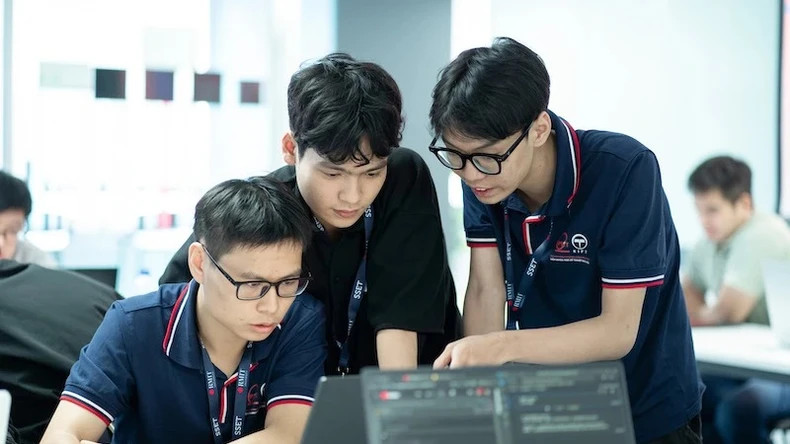 |
| Students of the Academy of Posts and Telecommunications Technology |
According to Lang Vinh Tuong, CEO of SmartDev Company Limited, to retain talented and capable people, the company invests heavily in training and developing human resources. Employees here regularly participate in in-depth training courses on the latest technology, especially AI.
In addition, SmartDev sponsors the cost of taking technical certification exams to help improve the professional qualifications of employees. The company also builds a creative working environment so those passionate about technology, especially AI, can develop and stay long-term.
Pham Hong Quat, Director of the Department of Startups and Technology Enterprises under the Ministry of Science and Technology said that businesses should create a working environment and technical infrastructure space to support talented people with the best conditions to be creative and contribute; build digital spaces, modern computers, 3D machines and minimum conditions for them to design and test new models and products.
He shared that in Vietnam, there is no modern technical infrastructure, making the working environment not attractive enough to attract and retain domestic and foreign technology talents to Vietnam, or Vietnamese people returning from abroad. Therefore, the State needs policies to attract talent, especially talented Vietnamese people abroad with practical experience from incubators, incubation facilities and large international corporations.
Technology experts also commented that to attract and retain talent, the Party and the State need to issue new laws and decrees suitable for technological development, especially reviewing and amending related laws, including the Law on Science and Technology and laws on budget and finance, to have truly breakthrough policy mechanisms, creating favourable conditions for businesses to attract and retain technology talents.
In addition, businesses must establish innovation support funds and young talent funds to develop human resources, maintain innovation, and enhance competitiveness by attracting and employing talented people. This helps Vietnam achieve its sustainable growth goals, creating a solid foundation to turn the country into a centre and a technology destination in the region and the world.
In the context of globalisation and the strong development of the 4.0 industrial revolution, policies to attract and retain talent have become a decisive factor for technology businesses. This is also a strategic solution for businesses to ensure competitiveness in the market and move towards sustainable development in the digital economy.
